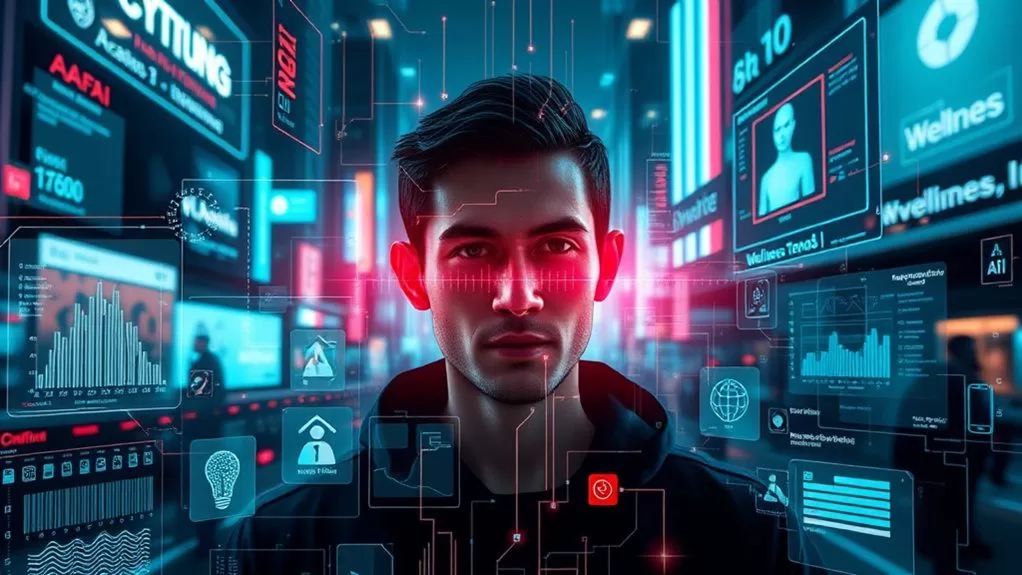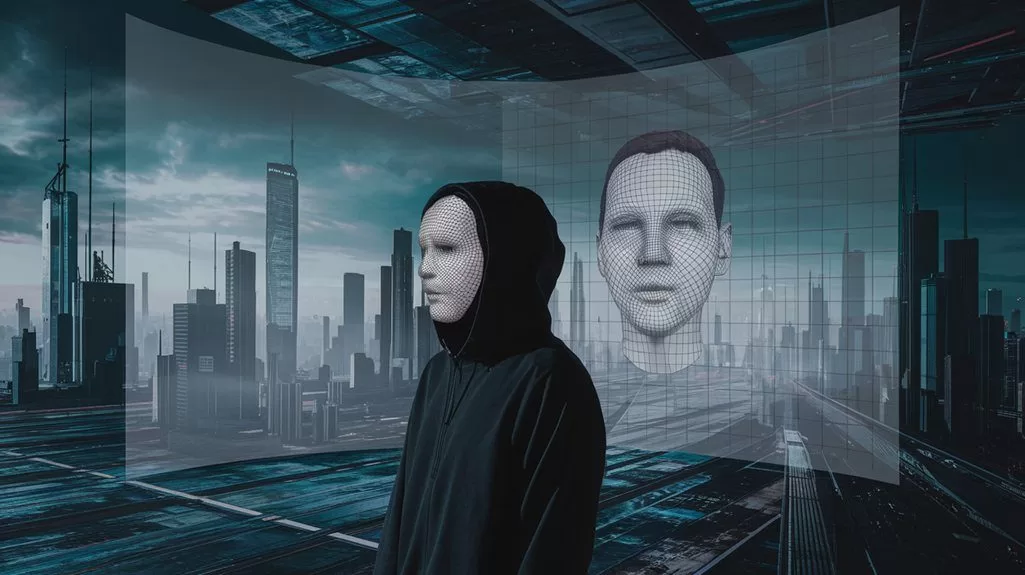AI deepfake scammers are infiltrating TikTok, tapping into its wellness mania to flog questionable health products. These digital tricksters exploit viral trends, linking dubious goods to deepfake-generated influencers. It's laughable how such technology brings a deceptive gloss of legitimacy to products like detox teas. Yet, they erode consumer trust, blurring lines between fiction and reality. The challenge? Spotting the fraud amid a sea of flashy content. A deeper look might reveal even more disturbing layers.
Key Takeaways
- AI deepfake scammers use TikTok to promote unverified wellness products, exploiting the platform's massive reach and young audience.
- Hyper-realistic deepfakes lend misleading authenticity to dubious health fads like detox teas and magic weight-loss pills.
- Scammers capitalize on viral wellness trends and hashtags to market their fake products across multiple platforms, including YouTube.
- Trust and authenticity are manipulated as users struggle to differentiate between real influencers and AI-generated personas.
- Platforms are enhancing security measures and multinational cooperation to combat the evolving threat of deepfake scams.

Why are deepfake scammers flocking to TikTok? It's simple: TikTok is a playground for deepfake ethics to be tested and trust erosion to flourish. With its expansive reach and a primarily young audience, TikTok offers scammers a fertile ground to exploit wellness trends and push dubious health fads. AI-driven scams have taken center stage, using sophisticated technology to create hyper-realistic videos or audio—often featuring fabricated endorsements from celebrities. These scams are not just local; they're global, transcending linguistic barriers like they're nothing more than speed bumps.
These scammers have honed their craft to an art form, using deepfakes to promote unverified wellness products. The very idea of deepfake ethics seems almost laughable, given how these AI-generated influencers can deceive users with their convincing personas. Trust? It's a fragile commodity here, crumbling under the weight of manipulated media. The ability of AI to blur the line between reality and fiction is both its strength and its curse, as it erodes trust in digital content and people.
Deception crafted into an art form, deepfakes blur reality, eroding trust in digital authenticity.
TikTok's wellness obsession has become a goldmine for scammers. They latch onto trending hashtags and viral challenges, promoting products that promise miraculous health benefits but deliver little more than empty promises. Cryptocurrency scams are a favorite, but wellness products? Those are the real bread and butter. From detox teas to magic weight-loss pills, scammers use deepfakes to give these products an apparent legitimacy they don't deserve. These fake influencers often claim to have expertise in health or beauty, adding an additional layer of deception to their schemes.
What makes this particularly insidious is the sophistication of the technology used. It's getting harder to tell what's real and what's not, a modern-day Turing test played out on a global stage. Misinformation spreads like wildfire, affecting commerce, society, and even national security. Companies can suffer serious reputation damage if deepfake content infiltrates trusted channels, causing chaos and confusion. The multi-platform approach of scammers, which extends to platforms like YouTube, amplifies the reach and potential impact of these scams.
The irony? The very platforms these scams exploit are also the ones battling to detect and prevent them. Security tools, facial recognition, data analysis—these are the frontline defenses. But the threat is evolving, and it requires multinational cooperation to keep up. It's a constant cat-and-mouse game, with the stakes higher than ever.
Ultimately, deepfake scammers on TikTok are weaving a complex web of deception. They're exploiting the very fabric of trust and authenticity, turning it into something malleable and easily manipulated. In this battle of wits and technology, the lines are blurred, and the impact is real, leaving users to question: can they ever truly trust what they see online?
References
- https://blog.avast.com/ai-is-fueling-a-surge-in-tiktok-scams
- https://www.dhs.gov/sites/default/files/publications/increasing_threats_of_deepfake_identities_0.pdf
- https://www.fastcompany.com/91293104/deepfake-scammers-are-hijacking-tiktoks-wellness-craze-to-sell-dubious-health-products
- https://hoxhunt.com/blog/deepfake-attacks
- https://unit42.paloaltonetworks.com/dynamics-of-deepfake-scams/









